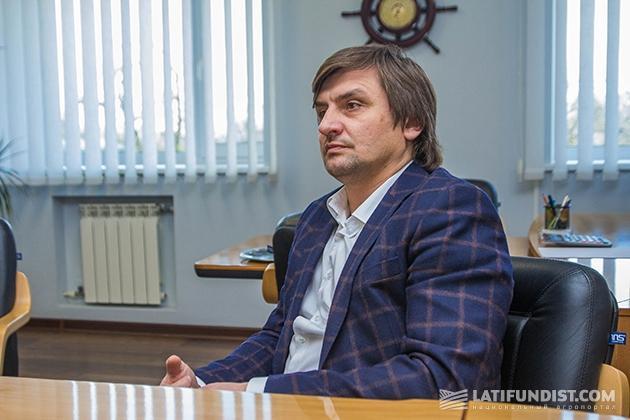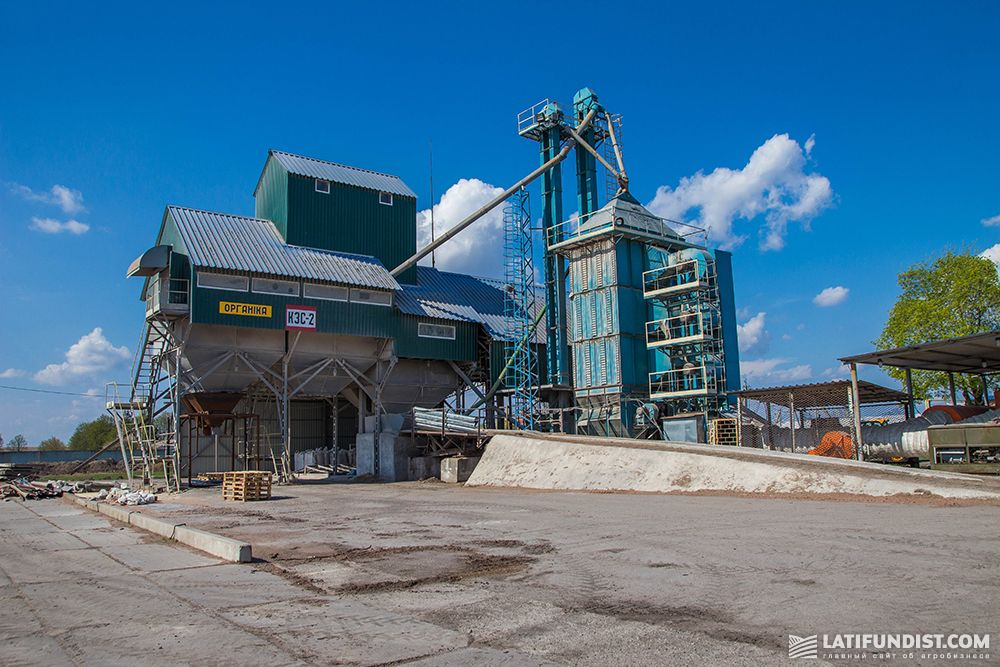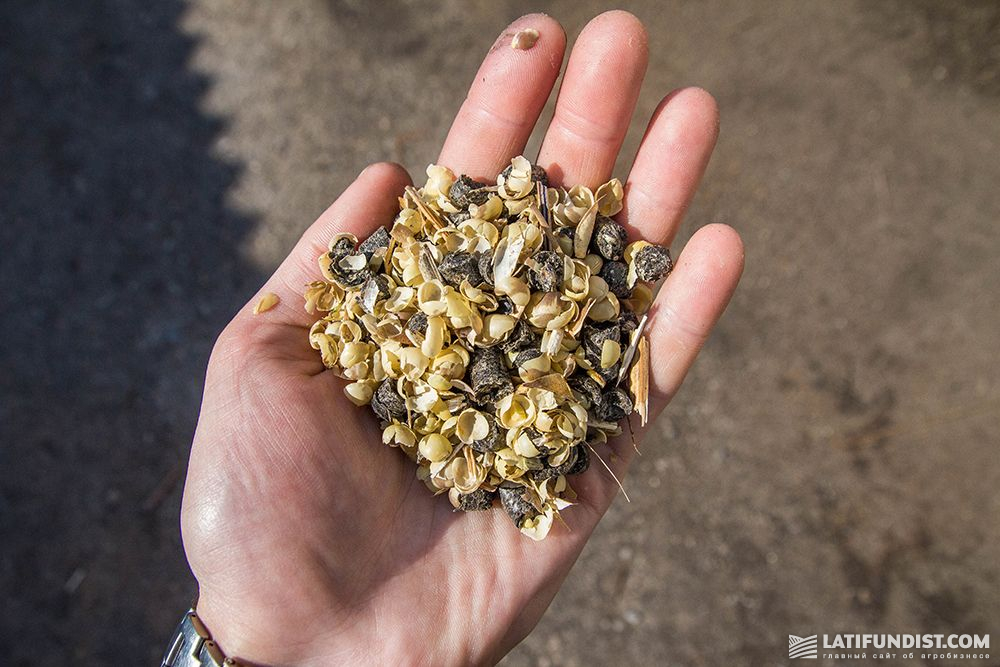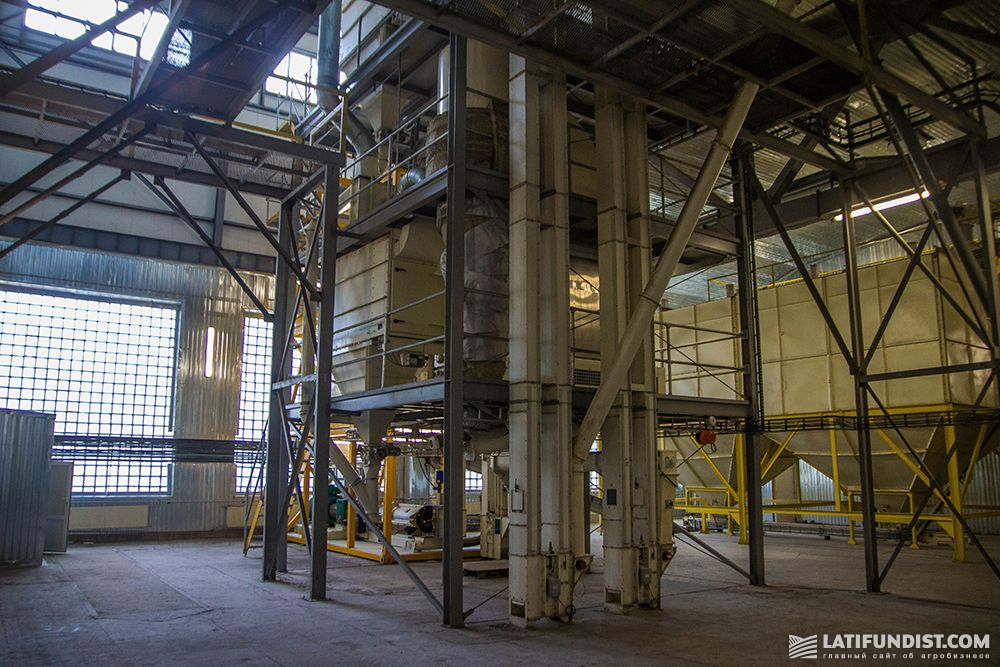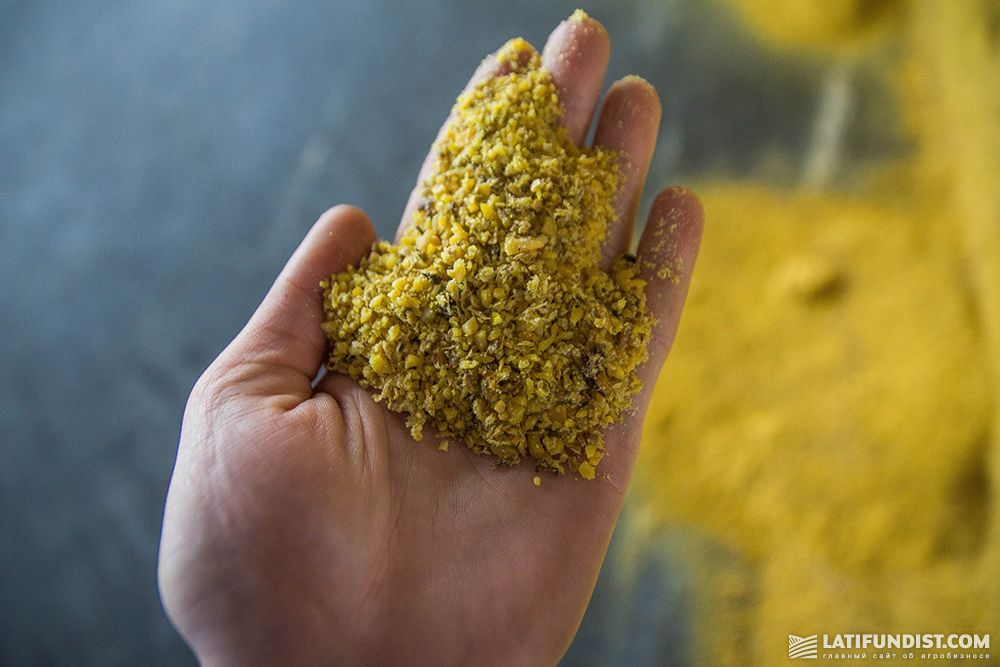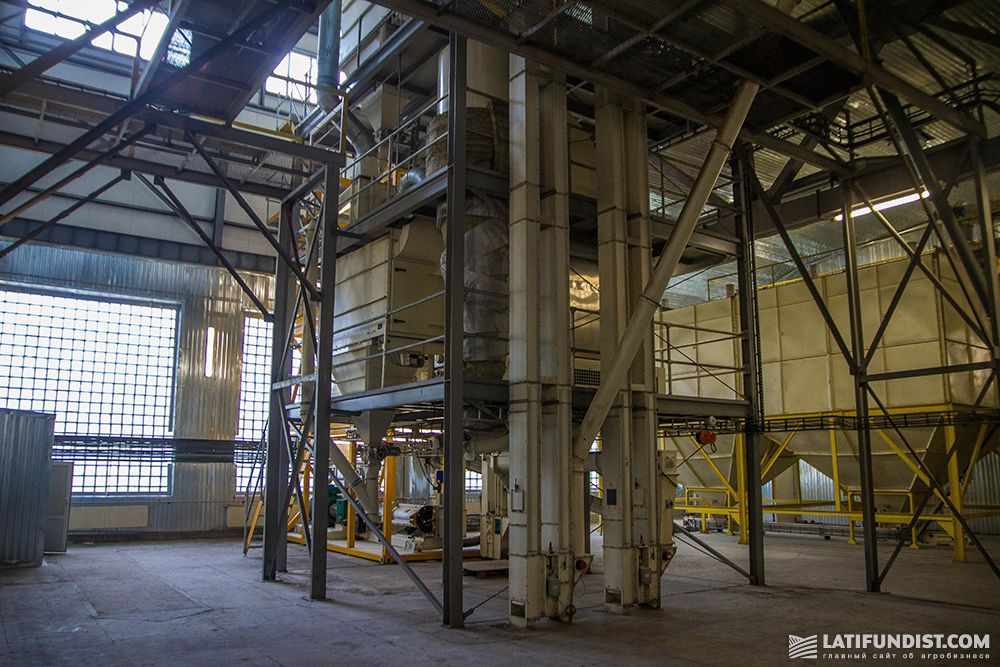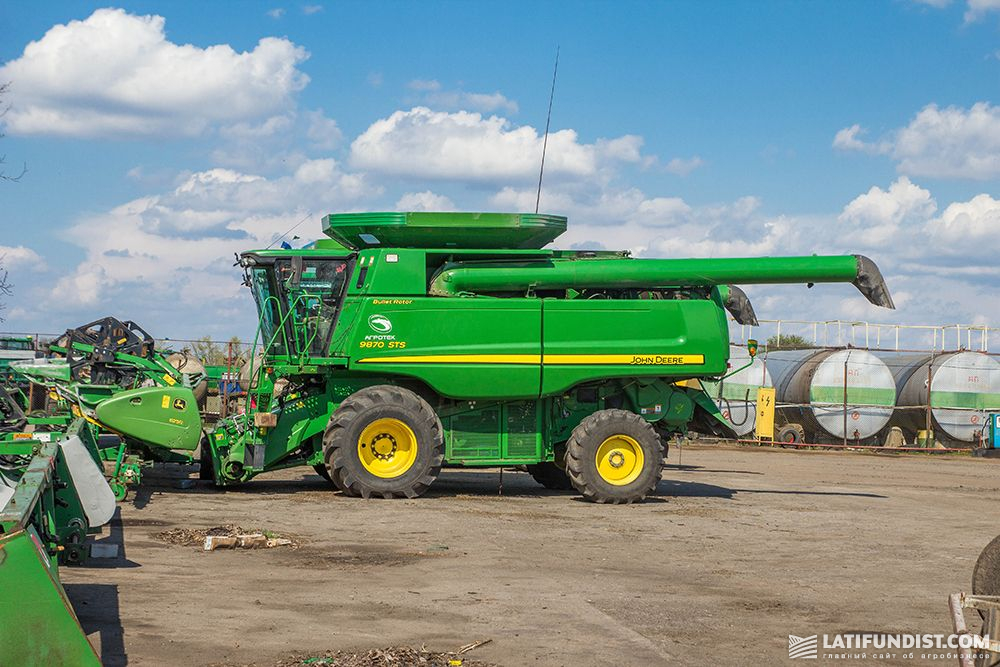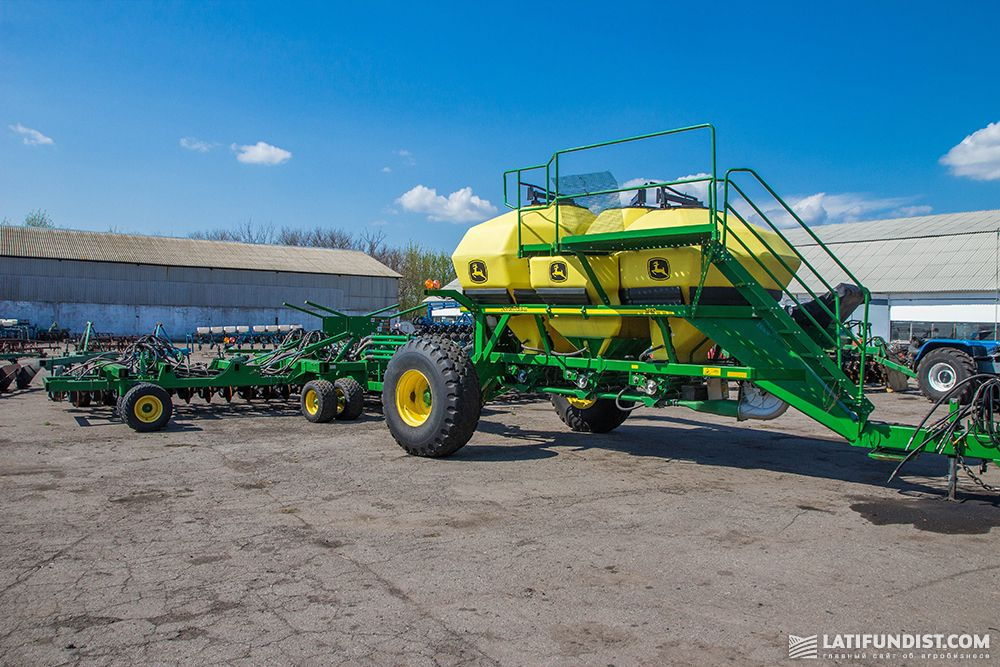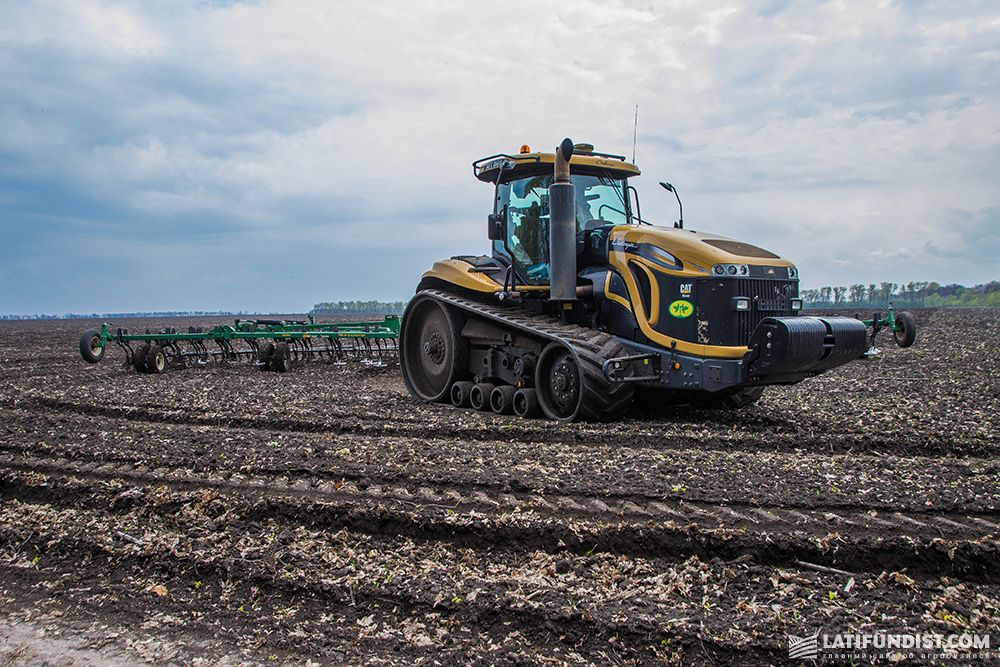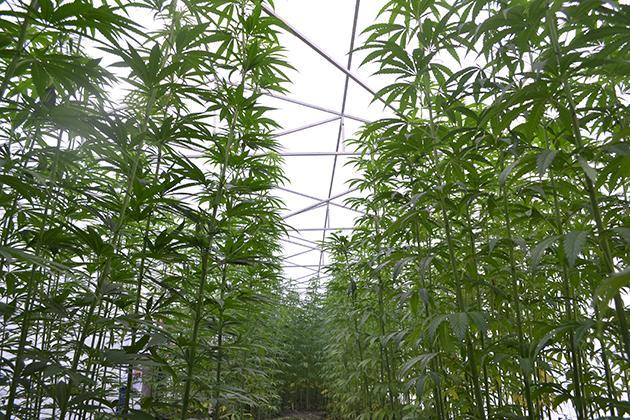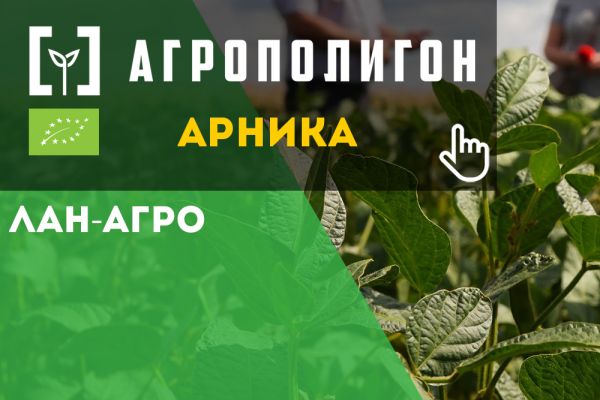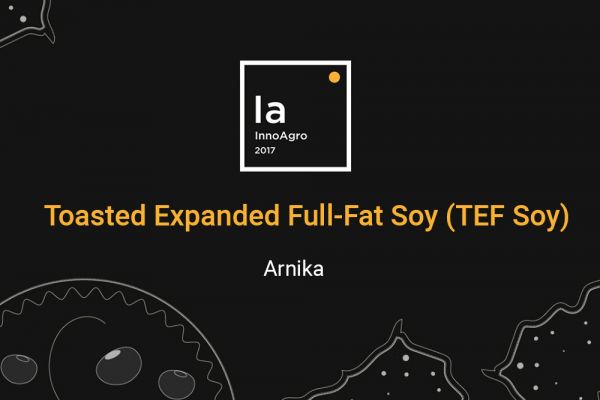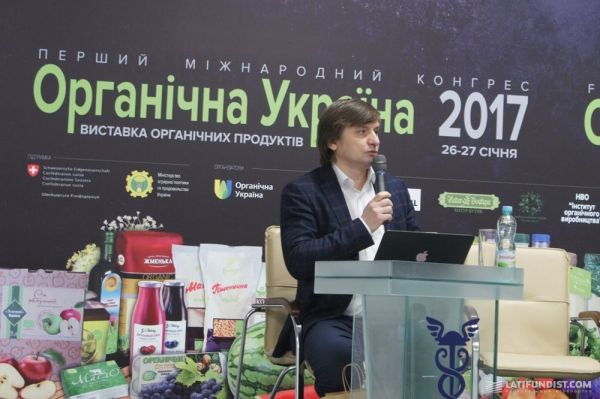Oleg Maksak: We Will Be the Biggest Organic Holding in Europe!
Arnika holding company consists of 11 subsidiaries. Over the last 15 years it has managed to grow from a small business based in the Ternopil region, into a large and successful enterprise that it is today. Arnika boats a land bank of 20,000 hectares, with one of its main specialisations being the growth of soybeans and TEF-type soy. The company puts a lot of effort into the diversification of soy production and has managed to introduce the newest technologies, research equipment as well as international certificates for quality. At a time when other agriholdings are busy increasing their spending on laboratories, Arnika already boasts a research institute dedicated to soy. Besides this, the company has placed particular emphasis on organic production, which many experts consider to be the future of Ukrainian agriculture. Oleg Maksak, the managing director of Arnika has spoken to Latifundist.com about the perspectives and future development of his company.
Latifundist.com: What are the main challenges facing Arnika, and what is your company's development strategy?
Oleg Maksak: We focus mainly on production of soy, and the soybeans themselves. Corn, wheat and sunflower are also some of products that we grow, although we do not specialise in that. The core of Arnika's activities is related to seed/bean production , and in order for us to further excel in this particular field, we must continuously strive to implement new technologies, methods and standards. Another aspect which distinguishes the company, is the Scientific Research Institute dedicated to Soy. The scientists working there are exclusively tasked with researching and developing the soy selection process. 38 hectares of land in the Globinsky region have been dedicated to these activities. This is one of our company's main aims, and is what distinguishes us from others.
Another thing which we are actively working to develop is the production of organic foods. We aim to become the largest Organic holding company in Ukraine and Europe. Some Ukrainian companies may be considered as potential competitors in this field, but when it comes to Europe, there are no organic producers of the same scale that can rival us. One of our subsidiaries, Granit-Agro already specialises in producing exclusively organic foods, but our aim is for all of our subsidiaries to switch to this type of production. Producing organic foods requires particular effort, and stringent adherence to rules and standards. It is only after implementing all of this, that a company is able to become fully certified.
When foreign buyers visit our company's facilities, they become amazed at our progress and level of capabilities. As with everything, there is a good reason for this. The stringent standards and processes utilised in Arnika's seed/bean production are very similar to those used for organic production. This year, organic soy has been in high demand, whereas demand for corn has not been that high. Despite this, it is still attracting lots of interest from European buyers . We have successfully delivered our first export of organic soy and corn to Germany, and have subsequently concluded export contracts to Switzerland. At the moment, we are working on exporting corn to New Zealand.
Latifundist.com: What led your company to focus on growing soybeans?
Oleg Maksak: Ever since the beginning, we planned to dedicate our activities to the production of agricultural foods that are not typical for central Ukraine. We didn't want to blindly follow what everyone else was doing. In fact, at that time, soy production in our country was practically nonexistent. Scientists and other such experts kept saying that growing soy in Ukraine is impossible. But the founder of Arnika, Mr. Andrey Pilipenko, was convinced that it was possible — and it was largely through his efforts that we successfully started the production of soybeans. Having said this, it must be kept in mind that the production of soy and the growth of soybeans themselves is not an easy process. It requires a lot of research, and each different type of soy that is grown must be kept separate to protect its characteristics and avoid mixing. Furthermore, all farm equipment and combines which are used int the process must be thoroughly washed and maintained. Therefore, it is not such a simple process as it may seem.
Latifundist.com: You have mentioned that, besides soy, your second priority is the growth of organic foods. Do you manage to cover all the logistical costs that are involved?
Oleg Maksak: At the moment, there is a noticeable deficiency of basic organic produce on the European market — including quality feed for organic farms and livestock. Furthermore, in recent years, a strong growth in demand for organic produce has created a vacuum when it comes to supply, and this presents a unique opportunity for our company. When potential buyers are choosing products, the carry out various tests and analyses to determine whether the products are actually organic, meaning that they shouldn't detect any chemicals were used during the production process. The sheer scale of such a process is rather stunning. For instance, one of our biggest partners, the German company Bioland Markt analyses thousands of chemical bonds on the products that it purchases from suppliers. Furthermore, the certificates which we are required to have before exporting to foreign countries are not easy to attain. Each product that we sell has to have a separate certificate that certifies it as organic. In our case, all of the organic products are certified as Organic Standard.
When our organic products are selected for testing, we must always present the certificate and send samples of each product that is requested. The products are tested to see if they comply with the standards of the European commission. Results and feedback is usually delivered to us after three weeks, and we are then able to send shipments to our buyers. The process however does not stop at that. When sending shipments over to Europe, everything must be photographed to show that even our vehicles comply with the necessary safety and cleanliness standards. After delivering the products, they are held in storage where their compliance with European standards is further tested, and only then released for sale on the EU market. The procedures markedly increase the logistical costs — and this is ultimately why organic produce ends up being more expensive as a whole.
Latifundist.com: What makes organic farming techniques so special?
Oleg Maksak: On one hand, these techniques are very different from the widely used methods and equipment of today, but on the other hand they are essentially similar to the older means of farming that were practiced by our ancestors. The main principle in organic farming is clear — no chemicals. Modern farming is very reliant on the use of various chemical elements that tackle crop problems and diseases. It is very difficult for the average person to understand the sheer scale of this process. And regrettably, at the end of the day, all of these harmful substances end up affecting human health in one way or another.
Organic farming does not rely on chemicals, and only uses biologically-active ingredients which are not harmful to humans. Major problems such as weeds are dealt with in various ways; namely through careful processing, use of natural repellents and herbicides. Soil enrichment also plays a big part, as different nutrient combinations and micro-organisms are added to support the growth of the plants. We are lucky that nature has given us an abundance of different organisms which manage to stimulate growth in a natural way.
Besides this, it is equally important to treat the plants as any other living being, analysing their behaviour and growth patterns. This is a completely different post-industrial view of agriculture which is very different from the factory farming that we predominantly see today. The head of Arnika Mr. Andrey Pilipchenko has taken this seriously and introduced the need for employees to familiarise themselves with agronomic literature dealing with organic farming; particularly the works of I.E Osvinsky who published the renowned book called New Systems of Farming back in 1909. I would strongly recommend that everyone reads it.
Latifundist.com: Which of your certificates are most important to your company?
Oleg Maksak: Our company received the main certificate in the field of organics. It is known as Bio Suisse (Switzerland). This certificate allows us to market our products abroad, and was the main pre-requisite for us to participate in the international exhibition of natural products known as BioFach (Nuremberg, Germany). Having a chance to participate in such an event was like visiting outer space. All the latest organic trends, and methods were discussed — and we were very pleased that we got access to such knowledge and expertise. Organic farming is, after all, a niche segment so an event of that scale was particularly important and illuminating for us.
Latifundist.com: What did you find particularly useful at the exhibition?
Oleg Maksak: Talking to colleagues from places such as Europe and Canada, and mentioning that your company is Bio Suisse certified meant that you automatically gained their trust and respect. What did we find useful? Firstly, it was the insight into the future development of the organic market as such, and secondly it was the understanding that we are on the right track.
Latifundist.com: Why else are you interested in organic farming? Is it more than just business?
Oleg Maksak: Branching out into organic farming is not only a way to increase revenues for our company, but it is a very positive philosophy. In a nutshell, it is considered as the right thing to do and it is that which people are aiming for. Organic farming should become embraced as a national policy, not just for our company but for Ukraine as a whole. It means improving Ukrainian agriculture in a very safe and natural way. Many parts of our country have very good soil, and they should become increasingly organic. This should form the basis of legislation, not just here in Ukraine but throughout the world.
Latifundist.com: A colleague from your company once told us that whilst beauty saves the world organic farming will save the soil.
Oleg Maksak: I certainly hope so! We are after all advocating for organic farming that is chemical-free. This is important and we feel that it is the right thing to do.
Latifundist.com: What other specific directions is Arnika pursuing?
Oleg Maksak: We are also growing organic hemp. This is a unique material, because hemp can be used in many different instances. The growing and processing of hemp is an ancient Ukrainian tradition, as it was often used in villages. We are aiming to revive these traditions and see hemp as a big asset for the future. This year we planted 80 hectares of hemp, 400 of which are organic. This is something that no one else does in Ukraine, and we are now looking for innovative methods to process it and export to foreign markets. Also, we are interested in increasing our capacity for the processing of soybeans, and developing technologies for the production of organic feed. This includes our goal of constructing an organic poultry farm.
Latifundist.com: How risky is hemp as a product?
Oleg Maksak: Developing hemp production is definitely worth the risk. Growing the plant is relatively easy. It is very good for organic farming because it is boats resilient characteristics. But growing this plant requires the attainment of special equipment and combines. Our first attempt at growing hemp happened last year. Furthermore, as part of our Scientific Research Institute, we have developed a special department dedicated exclusively to the study of hemp. So,month regards to this plant, it is safe to say that we will soon develop a unique type which we will commercialise. This will be the Ukrainian type which will be exported. Next year, we have plans to launch a factory for the processing of hemp as we have already purchased the necessary equipment for this project.
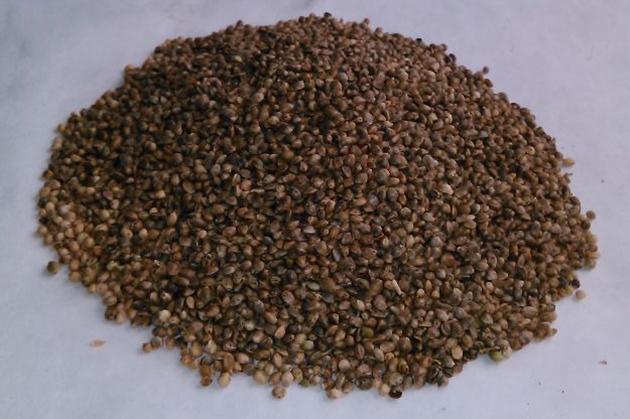
Latifundist.com: How long has it taken you to eats blush the Research Institute?
Oleg Maksak: What defines our research institute? First of all, it is our specialists. Without employing specialists in the field of agriculture, and without having the correct methodology and processes in place — it is difficult for a company to develop a research institute. Mr. Pilipchenko, the president of our institute has managed to draw leading experts in the field of soy and hemp, and has dedicated 38 hectares especially for research purposes. Between 2015-2016 we have invested more than 8million hryvnias. Just one of the combines which is currently used by the institute was purchased for €350 thousand. This is a very serious investment in today's economic environment.
Latifundist.com: Does your clientele consist mainly of farmers or large agriholdings?
Oleg Maksak: At the moment soy is very popular and in high demand. It is purchased by both small-scale farmers and larger companies in the agricultural sector who's orders can reach thousands of tons.
Latifundist.com: What separates Arnika from other companies in this field?
Oleg Maksak: I would say that it is our innovation, flexibility and continuous pursuit of new ways to grow and expand. The favourite slogan of our CEO is that «time doesn't wait!». The spirit of entrepreneurship is very much alive in our company and can be felt throughout. Furthermore, we have well-established standards in the field of organic farming and our certificates and quality standards to a long way in convincing buyers that we are truly their best choice.
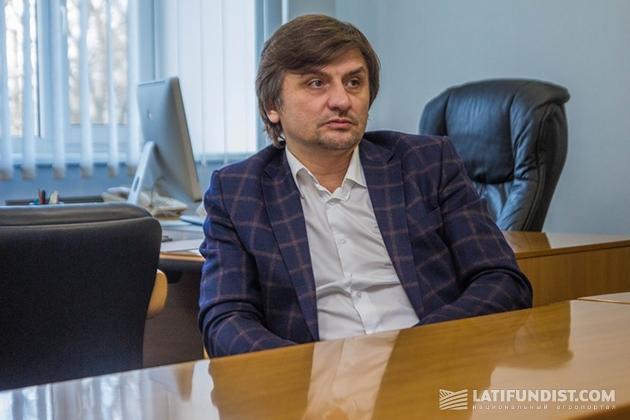
Nowadays, no one in Ukraine is able to offer organic soybeans. This is why our institute's main task for the coming years is to develop ways to launch this commodity in the Ukrainian market. These soybeans are much more resilient and can withstand high temperatures. The soybeans that we keep in storage have not lost their properties. We are already selecting different types of soybean with quality characteristics which will be launched in the near future. This means that we will definitely be the first in this field and it is what gives our company a competitive advantage.
Aleksei Beskletko, Tatyana Prikhodko, Latifundist.com
Interpretation by Jovan Djordjevic, Latifundist.com


